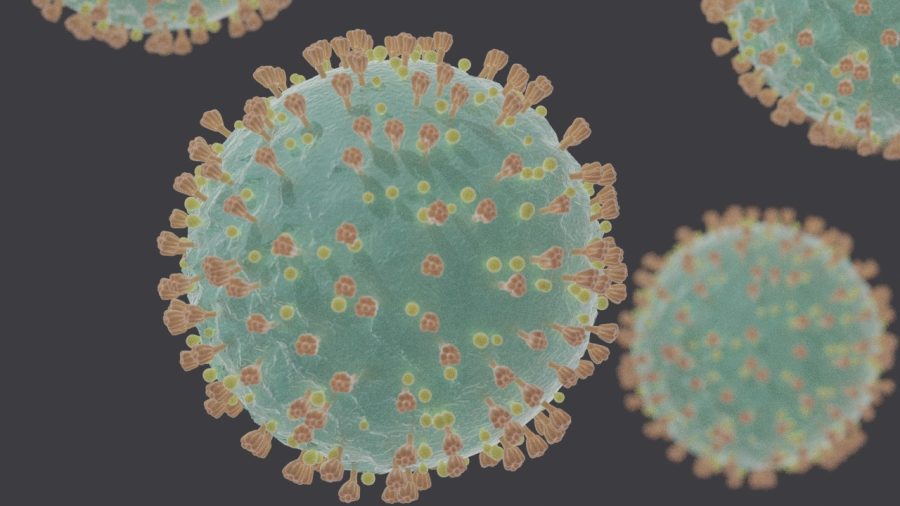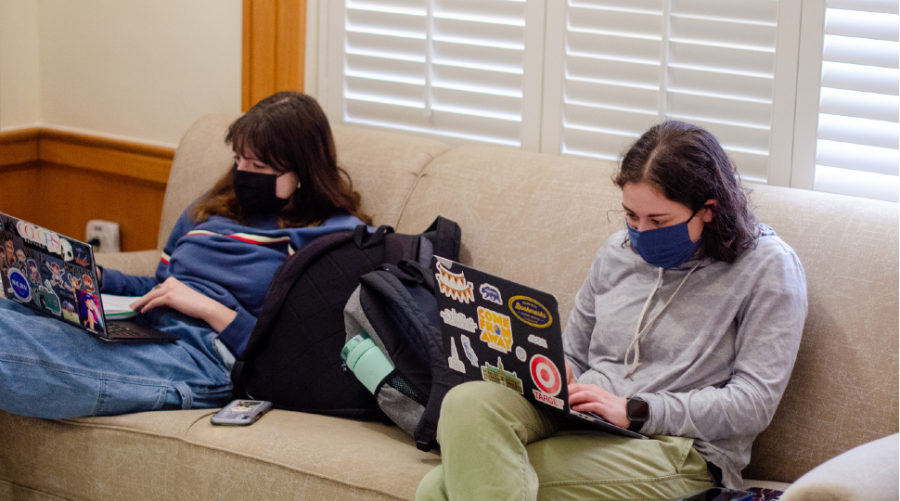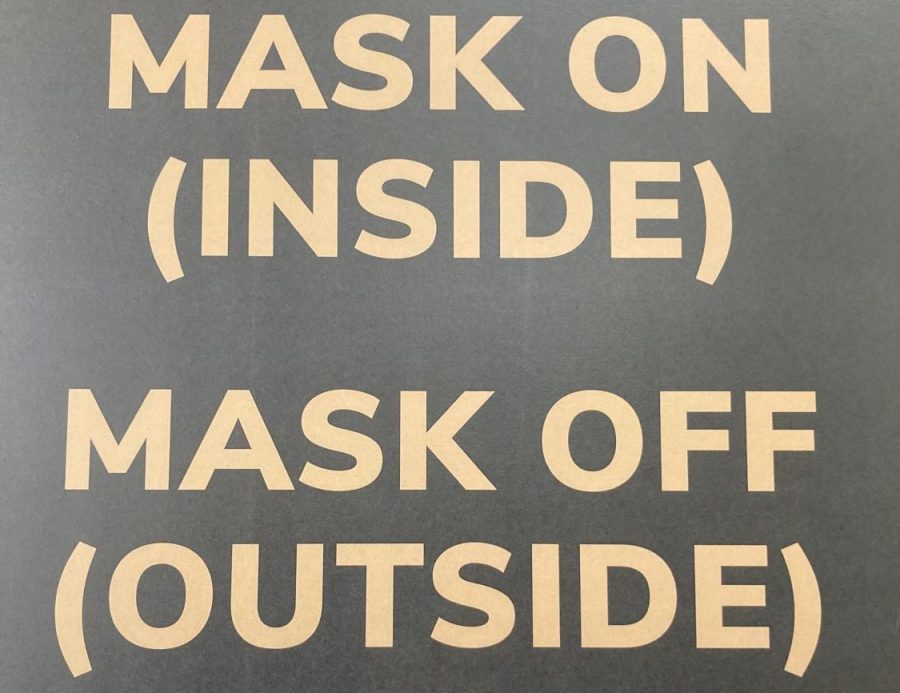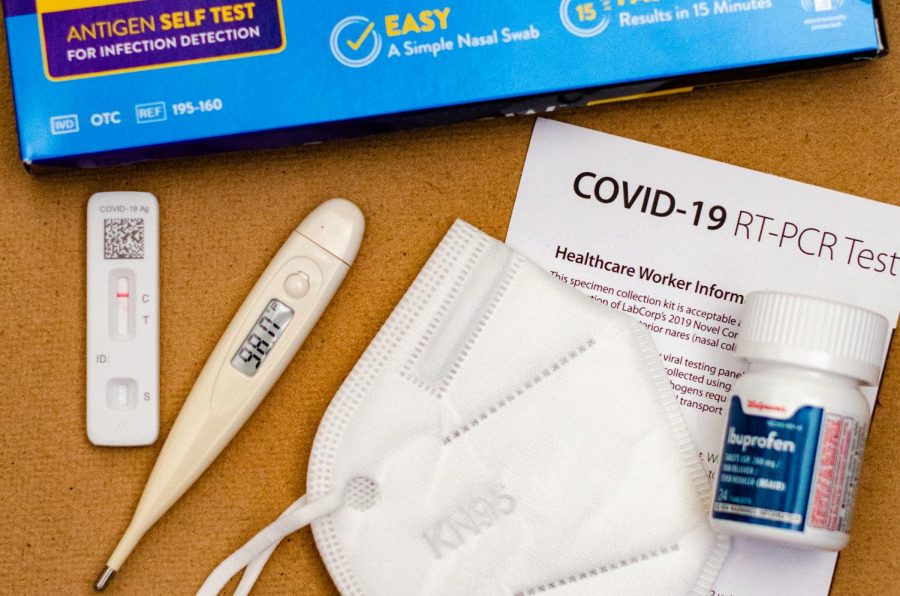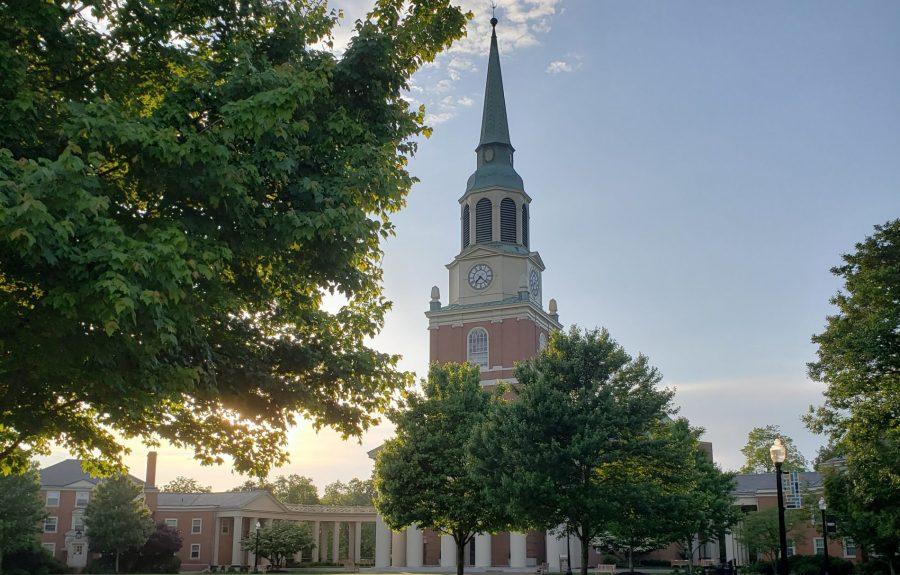Although students are socially distanced, they can continue to improve personal physical wellbeing. In fact, now is a time to prioritize health, wellness and fitness more than ever before. With initiatives like the Spring 2020 National Recreation Movement and Campus Recreation’s virtual group fitness classes, personal training packages and fitness tips, there are ample ways for students to remain physically active even while isolated at home.
The Spring 2020 National Recreation Movement is a virtual fitness program for college students across the country. The movement’s motto is “staying active together, even when we’re apart.” It provides daily fitness challenges and workout classes for its participants, who come from more than 75 colleges and universities across the country.
Connor Touhy, the coordinator of Corporate Sponsorship and Donor Relations at Campus Recreation, helped Wake Forest become involved with the movement.
“We got involved through NIRSA [National Intramural-Recreational Sports Association] — the national governing body for Campus Rec[reation] departments,” Touhy said. “We decided to participate [because] it was a great opportunity to stay connected with the Wake Forest community during this unprecedented time, as well as provide an additional resource to find various workout classes.”
To join the movement, students can simply create an account using their university email address. From there, students can then access different types of workout classes, such as kickboxing, strength circuits and total body toning.
There is also a competitive component to this movement. Students can log their workout minutes on their individual accounts, which will be added to their school’s total minutes. The greater a school’s total minutes, the higher its ranking on the leaderboard.
Wake Forest was previously in first place, but has since dropped to fourth place. The top five schools are currently the University of Maryland, the University of Baltimore, Stanford University, Plymouth State University, Wake Forest University and University of Colorado, Colorado Springs, respectively. The challenge will end on May 31.
“We are encouraging our participants to keep logging so we can get back to first place,” Touhy said.
As an additional effort to boost participation, the Spring 2020 National Recreation Movement has partnered with TikTok. Participants can make TikToks as they complete daily challenges, allowing them to share with other participants how they #RecAtHome. Daily challenges include push-up variations and timed circuits.
To learn more about the Spring 2020 National Recreation Movement, visit the website here.
Furthermore, Campus Recreation is continuing to provide its own virtual group classes, according to DeDe Cox, the fitness department manager at Campus Recreation.
“We are actually providing some of the things that had high interest and participation,” Cox said.
Current virtual classes include vinyasa power yoga, cardio dance and pilates. The workout classes take place over Zoom. The current class schedule can be found here, which also includes the Zoom links to enter each class.
On May 11, the schedule will be updated to reflect new virtual class offerings. This schedule will remain in place throughout the summer. .
Also, Deacs on Demand, a program which allows students to work with a trainer virtually, was rolled out in the fall and has attracted increased interest during this time. To participate, students first consult with a trainer with whom they discuss their needs and goals. After the consultation, trainers will either send students personalized workouts to complete independently or connect with students virtually while they complete their workouts.
Even when students do not have access to a gym or equipment, trainers can help them create effective workouts.
“At the end of the day, it comes down to good technique, good range of motion and opportunities to know how to create challenges,” Cox said. “Without a doubt, Deacs on Demand can happen without equipment.”
Cox is also working with Lori Tyson, the Fitness Coordinator at Campus Rec, to create an “Ask The Trainer” panel for the Wake Forest community.
“You could ask us questions about what you’re going through or concerns you have, and we’ll provide some open conversation,” Cox said.
More information about upcoming Campus Recreation initiatives will be shared through their social media page.
Finally, students struggling to find workout motivation while quarantined at home should first focus on what they enjoy doing.
“If you don’t like running, you shouldn’t go running,” Cox said. “You should first start with ‘What do I like to do?’ [or] ‘What brings me joy?’”
It is more important to find happiness in movement, rather than worry about the duration or intensity of your workout
Cox said Campus Recreation will continue to provide students with new, engaging ways to remain physically active while working remotely to meet the individual needs of each and every Deac.
“We want everyone in our Wake [Forest] community to know that we are more than just a gym,” Cox said.





